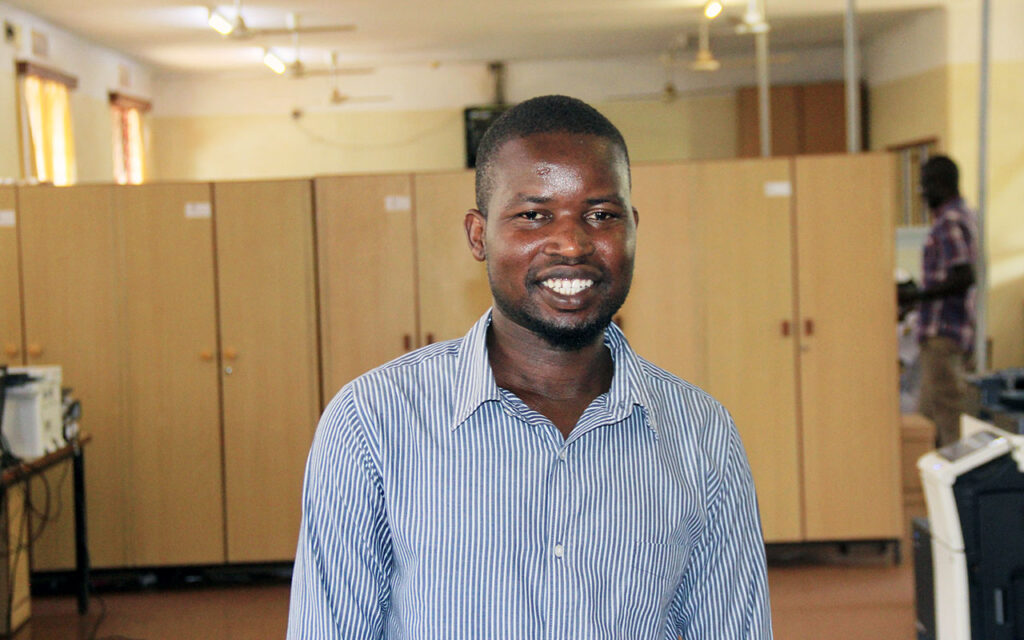Blue Monday, I wish it were Sunday – working with a bleeding disorder
On the saddest day of the year, Haemnet’s CEO reviews a recent pilot study on how having a bleeding disorder impacts working life

With cold, dark winter days, the festive season firmly in the rear-view mirror and bills arriving, it’s little wonder that the third Monday in January has been tagged the saddest day of the year. But spare a thought for those who face it and have to live with the everyday aches, pains and anxieties that frequently accompany bleeding disorders.
Conspicuous or absent?
Back in 2023, Haemnet did a ‘proof of concept’ survey based on the hypothesis that having, or caring for someone with, a bleeding disorder impairs work ability and productivity.
Our questionnaire included the Work Productivity and Activity Impairment (WPAI) questionnaire, a validated measure of impairment in both work and daily activities. It generates scores for absenteeism (regularly taking time off work), presenteeism (going to work even when unwell), work-based impairment and all activity impairment.
Those who completed our survey were mainly people with bleeding disorders (58/88; 66%), with the remainder being carers of someone with a bleeding disorder.
Over 72% of the people we spoke to were currently working. Surprisingly, absenteeism from work appeared to be low (6%) compared with our other survey based studies. For example, in our GT360 survey of people with Glanzmann thrombasthenia, 80% of respondents told us that bruising or bleeding had caused them (or their child) to miss time from work or education. One person noted:
The small nose and facial bleeds are a nuisance and sometimes affect my confidence in company.”
And in our FVIID360 study, 45% of people with Factor VII deficiency reported that bleeding ‘sometimes’, ‘often’ or ‘always’, caused them to miss work. Similar findings are emerging in our ongoing survey of people with von Willebrand disease: 71% of 330 respondents so far say that bleeding is a cause of time missed from work.
Cause and effect
Frequent bleeding results in tiredness and fatigue, impacting not only a person’s ability to work but their effectiveness while working.
Bleeds also cause pain. A few years back, people with a bleeding disorder who took part in our pain study told us that pain affected their mental health, resulting in anxiety. Yet many worked through it. One man with haemophilia B said:
I don’t want to be the one who’s always having sick days, I feel like I almost push myself when I know I should be having a day off, but I don’t because people will notice.”
This tendency to work through illness but not function fully also came through loud and clear in our work survey. The rate of presenteeism among people with bleeding disorders was 30%, accompanied by high rates of impairment in work and daily activities.
This is consistent with national surveys suggesting a rise in the number of people working through illness. Last summer the Institute for Public Policy Research (IPPR) found that the cost to the UK economy of presenteeism exceeded £100bn in 2023, contributing to poor economic productivity.
Carer careers
Our pilot study also suggested that caring for someone with a bleeding disorder is associated with work-based costs.
Although 83% of the carers who responded were currently working, they appeared to lose more time from work than those who have a bleeding disorder. And 63% of carers told us that, although they work only part-time, they would work full-time were it not for their caring duties. Some had given up work to become full-time carers.
One mother of a child with newly diagnosed Factor VII deficiency told us:
I used to work before … because he’s fully dependent on us it’s a bit tough for me to go back into work for now.”
A mother with von Willebrand disease told us:
I left my job due to my daughter’s nose bleeds. Her symptoms are more severe than my own.”
Working smarter
When health services talk about haemophilia and bleeding disorders, the focus is so often on drug costs, particularly when it comes to funding new treatments.
Taking a more rounded approach to researching the impact of new treatments that reduce bleeding may well show that they enable affected individuals – and their carers – to become more productive members of society. Even if they won’t overcome the January blues.
About the author
Mike Holland is CEO of Haemnet Ltd.


